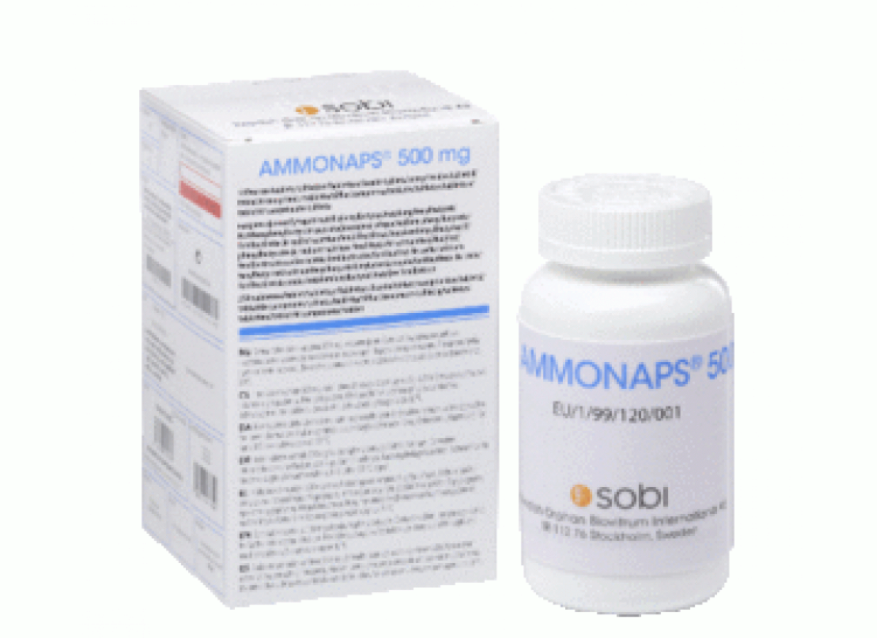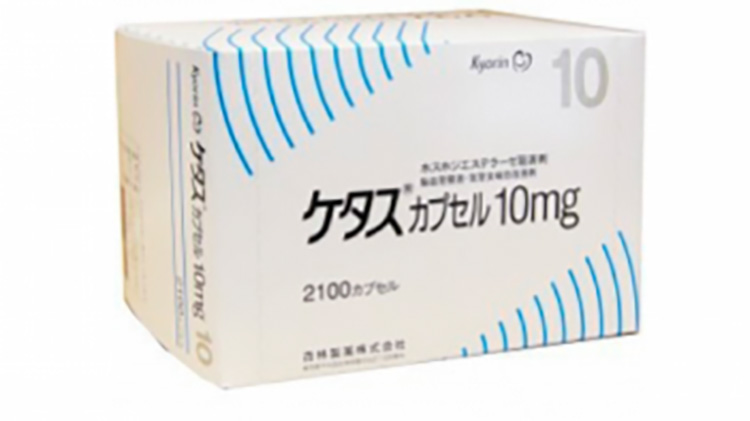Ammonaps (sodium phenylbutyrate) vs Ketas (ibudilast)
Ammonaps (sodium phenylbutyrate) vs Ketas (ibudilast)
Ammonaps (sodium phenylbutyrate) is primarily used as a treatment for urea cycle disorders, which are genetic conditions that affect the body's ability to remove ammonia from the bloodstream. Ketas (ibudilast) has a different mechanism of action and is used in Japan for the treatment of asthma and post-stroke complications, and it is also being investigated for its potential in treating multiple sclerosis and certain addictions. When deciding between Ammonaps and Ketas, the choice would depend on the specific condition being treated, as they are not typically interchangeable and are used for different medical indications.
Difference between Ammonaps and Ketas
| Metric | Ammonaps (sodium phenylbutyrate) | Ketas (ibudilast) |
|---|---|---|
| Generic name | Sodium phenylbutyrate | Ibudilast |
| Indications | Urea cycle disorders | Asthma, cerebrovascular disease, and more recently, multiple sclerosis and neuropathic pain |
| Mechanism of action | Converts to phenylacetate which conjugates with glutamine to form phenylacetylglutamine, thereby reducing ammonia levels | Phosphodiesterase inhibitor, which reduces neuroinflammation and promotes neuroprotection |
| Brand names | Ammonaps, Buphenyl | Ketas, Eyevinal |
| Administrative route | Oral | Oral |
| Side effects | Nausea, vomiting, headache, body odor, taste aversion | Nausea, diarrhea, rash, depression |
| Contraindications | Hypersensitivity to sodium phenylbutyrate or any component of the formulation | Hypersensitivity to ibudilast or any component of the formulation |
| Drug class | Urea cycle disorder agent | Phosphodiesterase inhibitor |
| Manufacturer | Swedish Orphan Biovitrum | Kyorin Pharmaceutical Co., Ltd. |
Efficacy
Efficacy of Ammonaps (Sodium Phenylbutyrate) in ALS
Ammonaps, known generically as sodium phenylbutyrate, is a drug that has been explored for its potential efficacy in the treatment of Amyotrophic Lateral Sclerosis (ALS). ALS is a progressive neurodegenerative disease that affects nerve cells in the brain and the spinal cord. The efficacy of sodium phenylbutyrate in ALS has been investigated due to its potential neuroprotective properties and its ability to reduce neuronal stress. Preclinical studies have suggested that sodium phenylbutyrate may help in reducing the accumulation of misfolded proteins, which is a characteristic of ALS. However, clinical trials are necessary to fully establish the efficacy of Ammonaps in patients with ALS.
There have been clinical trials that evaluated the combination of sodium phenylbutyrate with another drug, tauroursodeoxycholic acid (TUDCA), for the treatment of ALS. These studies aimed to assess whether the combination therapy could slow the progression of ALS. The results from these studies have shown some promise, indicating a potential slowing of disease progression. However, it is important to note that as of the knowledge cutoff date, Ammonaps alone has not been approved by regulatory agencies specifically for the treatment of ALS, and more research is needed to confirm its efficacy and safety for this indication.
Efficacy of Ketas (Ibudilast) in ALS
Ketas, which is the brand name for ibudilast, is a phosphodiesterase inhibitor that has been used primarily in Asia for the treatment of asthma and post-stroke complications. Its efficacy in ALS has been investigated due to its anti-inflammatory and neuroprotective properties. In ALS, inflammation and glial cell activation are thought to contribute to the progression of the disease. Ibudilast's ability to modulate the activity of microglia and astrocytes, which are involved in neuroinflammation, makes it a candidate for the treatment of ALS.
Clinical trials have been conducted to evaluate the safety and efficacy of ibudilast in patients with ALS. The results of these trials have provided some insights into the potential benefits of ibudilast in slowing the progression of ALS. For instance, a phase II trial suggested that ibudilast was well-tolerated and could potentially have a modest effect on slowing disease progression. However, larger and more comprehensive clinical trials are needed to definitively determine the efficacy of Ketas in the treatment of ALS. As of the knowledge cutoff date, Ketas has not been approved for the treatment of ALS by regulatory agencies, and its use for this condition remains experimental.
Regulatory Agency Approvals
Ammonaps
-
European Medical Agency (EMA), European Union

-
Food and Drug Administration (FDA), USA

-
Therapeutic Goods Administration (TGA), Australia

Ketas
-
Pharmaceuticals and Medical Devices Agency (PMDA), Japan

Access Ammonaps or Ketas today
If Ammonaps or Ketas are not approved or available in your country (e.g. due to supply issues), you can access them via Everyone.org.
How it works

Make an enquiry
Choose the medicine you want to buy, answer a couple of questions, and upload your prescription to speed things up. We’ll get back to you within 24 hours.


Make an enquiry
Choose the medicine you want to buy, answer a couple of questions, and upload your prescription to speed things up. We’ll get back to you within 24 hours.


Breeze through the paperwork
We'll guide you through the required documents for importing unapproved medicine, ensuring you have all the necessary information.


Get a personalized quote
We’ll prepare a quote for you, including medicine costs and any shipping, administrative, or import fees that may apply.


Receive your medicine
Accept the quote and we’ll handle the rest - sourcing and safely delivering your medicine.

Some text on this page has been automatically generated. Speak to your physician before you start a new treatment or medication.
Let's talk
If you have any questions, call us or send us a message through WhatsApp or email:
Contact us




